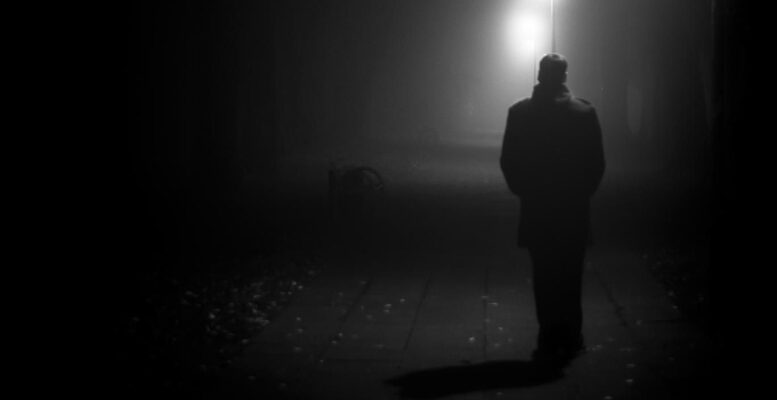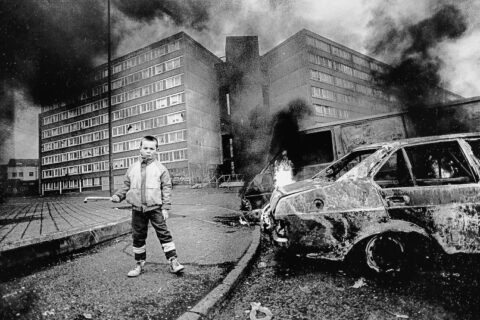As part of my work, I had the unusual and surreal experience of having to do a substantial amount of research on the death of a child and the impact on parents not even 30 days after losing a 12 year old son who bled out and died unexpectedly during an operation. Two years before that, my younger sister also died unexpectedly leaving a shocked husband but no kids behind.
I regrettably also have a long list of others in my life who have died tragically or who have had someone close to them die without warning. In one case, three friends stupidly standing in a road changing a tire were hit and killed by a truck. Another buddy shot himself because he didn’t get into the college his high expectation parents had been pressuring him about since he was in grade school.
Being a witness to the wreckage of all these events, I can say that the loss of a child is uniquely painful and the hardest to recover from. (The closest I’ve seen is two young couples who lost a spouse.)
Please listen: The odds are you will not weather a loss like this if you’re not prepared ahead of time.
The Walking Wounded
There are an estimated 150,000 families in the United States that lose a child under 18 each year.
Of those:
- Approximately 26,000 end in stillbirth (considered stillbirth after 20 weeks)
- Approximately 19,000 end in infant death during the first month.
- Approximately 39,000 end in infant death during the first year.
The remaining 66,000 other deaths of adolescents and teens are due to a wide range of accidents and illnesses.
When the 500,000 pregnancies each year that end in miscarriage (before the 20th week) and then adult-age children (up to 21) are included, it translates into about 19% of the population at any given moment have experienced the loss of a child.
The complex interplay of the psychological, emotional, relational, and spiritual dimensions after the loss of a child is a process of recovery and healing that plays out over years even if well managed.
The vast majority, however, never get the support or help they need with very real and bad consequences as a result:
- Nearly 80% of marriages that experience the loss of a child will eventually end in separation or divorce.
- Surviving members of the family have permanently damaged or broken relationships due to misplaced blame, resentments, or emotional abandonment (surviving siblings often never get mom, dad, or both fully back).
- Social ties diminish or terminate leading to isolation and a negative spiral. You feel empty and the world is uncaring.
- A range of addictive behaviors frequently develop including drug and alcohol abuse, smoking, over and under eating, and over working.
- Quitting or losing jobs because of depression and combinations of the other preceding factors.
- Suicide and extended thoughts of suicide are common.
What follows may sound like tabloid pop-psych, but it’s grounded in lived experience matched against substantial research. A lot of chaos and damage can be avoided by doing simple things with the punchline being you need to be able to communicate openly with people you trust and can be vulnerable with, and that is going to require practicing right now.
As a side benefit, even if you should never experience the death of a child or other profound loss, you’re going to come out ahead.
In half of all marriages that do not end in divorce, one or both spouses report they don’t have a good or happy marriage. It’s either boring, unloving, or they simply drift apart especially after kids leave the home.
Four Things You Need To Begin Working On Now
1) Emotional Communication. This has nothing to do with gushing and discussing every nuance of your mood, but instead being okay telling your spouse or other family members how you honestly feel when things aren’t going well at work, or what frustrates you, or what animates and inspires you. If you can’t manage this now, there is zero chance in hell you’re going to suddenly be able to find the words to express what you’re feeling when things blow up.
2) Physical Intimacy. There is already a big gap in the physical and sexual needs between men and women. During a crisis these differences can magnify beyond belief and become flash points. You need to be able to have open and mature conversations about physical and sexual intimacy.
For example, after a miscarriage what you think is a comforting hug can be a bristling experience for a mom. She might recoil, the guy will feel rejected, get angry, both go to their corners and….well, recall that 80% of relationships fail after the loss of a child. The loss of a kid is going to make any physical let alone sexual intimacy a huge problem area.
And consider this, 1 in 4 women and 1 out of 6 men have been sexually abused in their lifetime. You might not even know your spouse has something in their past they are embarrassed or ashamed to tell you about. Even in good times, this hidden past is going to have consequences. The loss of a kid is going to resurrect any past traumas and the two combined can be unmanageable. Get comfortable talking about this stuff now.
3) Communication Skills. In general, this can be summed up as knowing how to fight and argue fairly. There are a ton of things out there about how to have a healthy respectful disagreement. This will help in any context, but especially with family. It’s not rocket science and you need to get over the awkwardness (and pride) of suggesting you’d like to talk about this.
Again, if you can’t talk calmly and with charity during a normal argument now you are not going to have the ability to talk through heavy issues, whether death in the family, financial troubles, what to do with aging parents, or any number of things that you’re going to experience.
4) Spiritually Grounded. For Christians, suffering and loss have meaning. It may not feel consoling in the moment, but I can tell you from seeing too much up close and very personal, this is the number one point that is most consistent with those who make it and those who don’t.
If your faith isn’t strong, a significant stress test will dangerously expose the weakness. We’ve seen that character in the movie who doesn’t take a loss well and who gets angry at God and becomes a bitter nihilist. This character is real.
All the unresolved issues in your life will conspire, collide and try to crush you when things go bad. It can happen, I’ve seen it happen, and it is scary to see how quickly this can flip on someone. I repeat, I’ve met no one without faith who has survived tragedy and come back even close to being whole.
So, to all my righteous pagan and my radically skeptical but ethically good friends, the abyss is real. Is what you believe in strong enough to get you across? Whatever you worship, be sure it’s real and deeply rooted. If it’s just you lost in the cosmos, you’re not going to make it.
You Need to Show Up
People will grieve personally for several weeks. They really don’t want another person in their space, not their spouse, not a parent, no one. Men recover faster than women, so it is not uncommon for wives to look at husbands and become angry because he looks like he’s “doing better too soon.” But it’s just different and each will be wrestling with themselves, God, the unfairness, guilt and their own particular demons for a long time.
Abruptly after the personal grieving period ends is when the shift to “the other” takes place and it becomes vital for mutual support.
This is the time when all the things mentioned previously need to be in place. This is the time when things either begin to unravel and fly apart or you’re able to lean on each other and get through.
As parents, you need to be unified and be there for any other kids. As for your relatives who don’t have a clue how to discuss or help, friends who will want to do things but are equally unsure what to do…let them all do something, let them bring meals, do an errand or two even if you don’t need or want it.
While there’s nothing that can be said to someone grieving in the first 3-4 weeks of grief other than “I’m sorry for you,” after those first weeks pass, get your ass back into their lives. Don’t abandon them thinking they still need their space. Invite them to talk about it. Be normal around them.
Life is beautiful and has meaning which is why it hurts so terribly when it is taken away. Hug your babies and don’t let the sun go down without making amends because sometimes there is no tomorrow.

‘Cause down in Alabama, you can run, but you sure can’t hide.






Wise words. You never get over losing a child, it gets better. There is always a scare, and that’s okay.